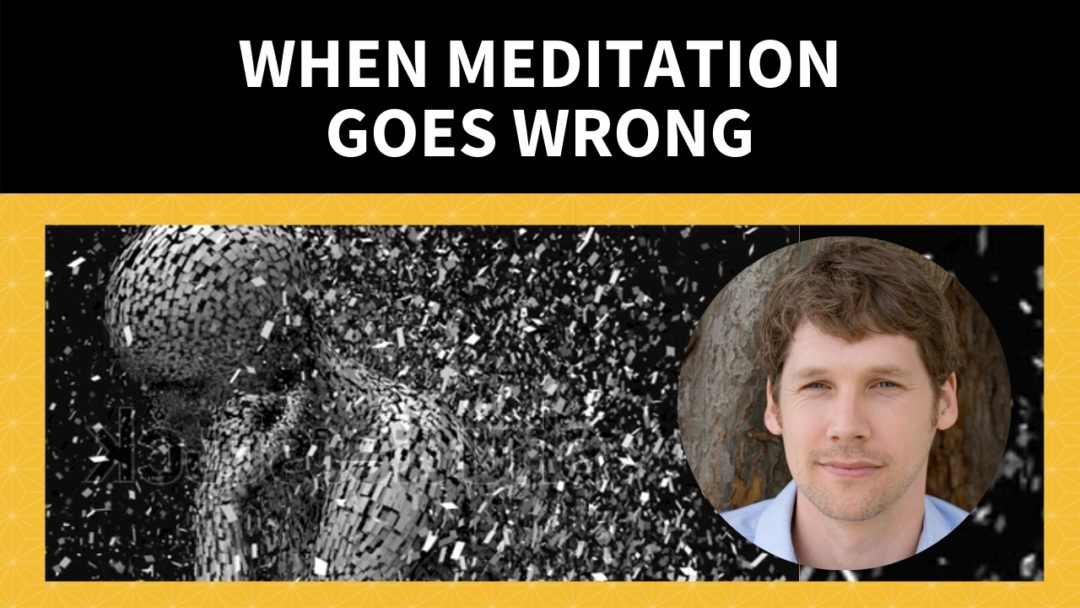I have studied, taught and practiced meditation for over 30 years. I consider meditation, arising in its endless variations, to be indispensable to spiritual development and I sing its praises regularly on this podcast.
I have also occasionally spoken about my experience years ago when an intense period of mindfulness meditation triggered a multi-year siege of anxiety which began to heal only when, after much suffering, I cast off the instructions of my teachers to “just keep meditating” and got up from the cushion and fled a retreat.
A few weeks ago I ran across an essay written by meditation teacher, Dan Lawton, called When Buddhism Goes Bad; How My Mindfulness Practice Led Me to Meltdown. A committed meditator for ten years and a full-time teacher in the Mindfulness-Based Stress Reduction system, he described his similar (though perhaps more extreme) experience of anxiety and dissociation triggered by meditation.
When I read his story, I felt an instant siblinghood. His essay validated my experience and brought clarity to the risk inherent in lifting a transformational spiritual practice out of its traditional culture where any resulting “hell realms” and “dark nights” are recognized and metabolized.
He writes:
As meditation practices have exploded in popularity in the West, they have brought with them an array of adverse experiences far beyond the typically-billed benefits of lower stress, decreased anxiety and reduced pain. The terrain of fractured, disruptive and altered states of consciousness has often been explored in Buddhist teachings through the centuries, but when these practices made their journey into Western culture, a sufficient understanding of the downsides of meditation was lost in transit.
One way to avoid adverse effects is to integrate mindfulness practice with somatic, psychological and interpersonal work. For instance, both Dan and I ultimately found relief from our psychic pain through a trauma therapy called Somatic Experiencing, founded by the psychologist Peter Levine.
My ordeal also undoubtedly fueled my later participation in developing Integral Life Practice (ILP) at the Integral Institute in the early 2000’s. ILP is a comprehensive synthesis of transformational practices and is currently offered in many forms through Integral Life. I just wish I had had it 10 years earlier!
If an online search of “adverse effects of meditation” is any indication, the potential dangers of modern mindfulness practice are becoming more apparent. Dan highlights the work of Dr. Willoughby Britton, Director of the Clinical and Affective Neuroscience Laboratory at Brown University, who studies both positive and negative effects of meditation and has found that 37% of meditators studied report negative impacts on functioning and 6% had “lasting bad effects.” Dr. Britton has founded Cheetah House, a non-profit organization “that provides resources about meditation-related difficulties to meditators-in-distress and teachers of meditation-based modalities.”
Meditation is a powerful and precious tool and I offer this podcast in the spirit of helping us to develop a less naive and more mature relationship with it. I hope you are enlightened by my conversation with Dan Lawton.
***************
If you haven’t already, check out my new YouTube show, “This Week in The New York Times”, hosted by the Post-Progressive Post, where I look at news stories through the lens of cultural and consciousness evolution.
VIDEO
AUDIO ONLY
Podcast: Download
Subscribe: Google Podcasts | RSS






